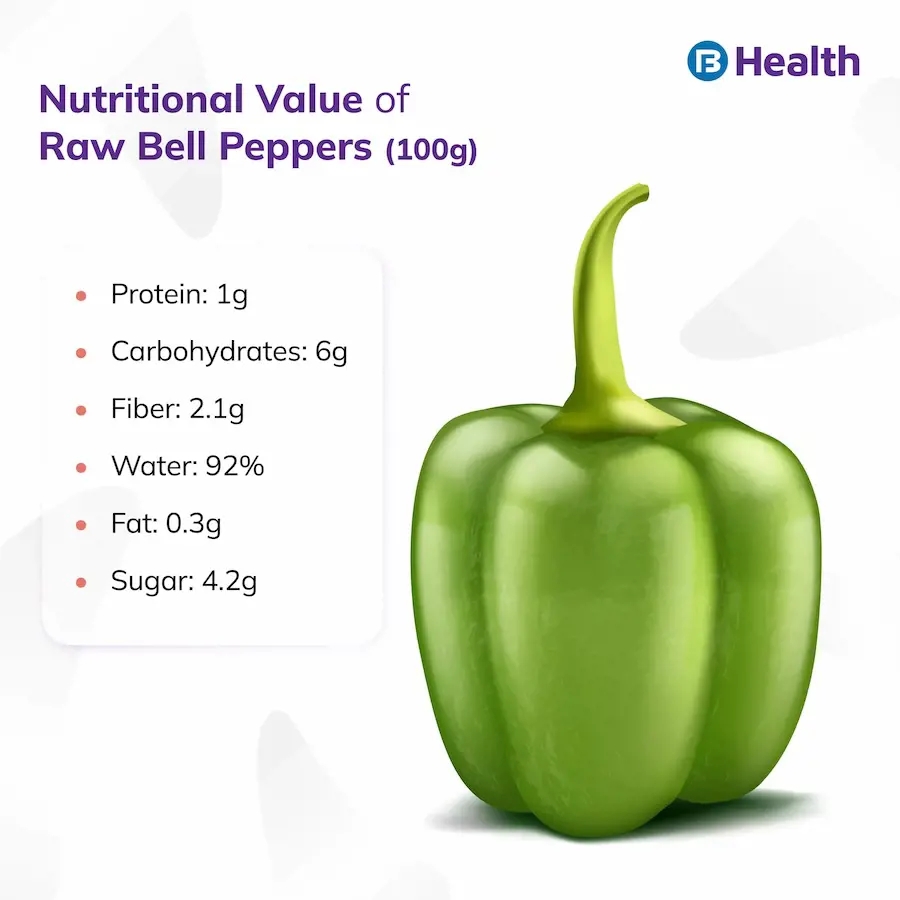1. Bell Peppers are rich in nutrients

Bell peppers are low in calories and high in nutrients. Here is the nutritional composition of one medium-sized bell pepper (approximately 119 grams):
- Calories: 24
- Carbohydrates: 6 grams
- Fiber: 2 grams
- Protein: 1 gram
- Fat: 0 grams
- Vitamin C: 150% of the daily recommended intake
- Vitamin A: 11% of the daily recommended intake
- Vitamin B6: 11% of the daily recommended intake
- Vitamin K: 7% of the daily recommended intake
- Potassium: 6% of the daily recommended intake
- Folate: 5% of the daily recommended intake
- Vitamin E: 4% of the daily recommended intake
Bell peppers are also a good source of antioxidants, particularly carotenoids such as beta-carotene and lutein. They are also rich in water, which makes them hydrating. Additionally, bell peppers are low in carbohydrates and have a low glycemic index, making them suitable for people following low-carb or diabetic diets.






















